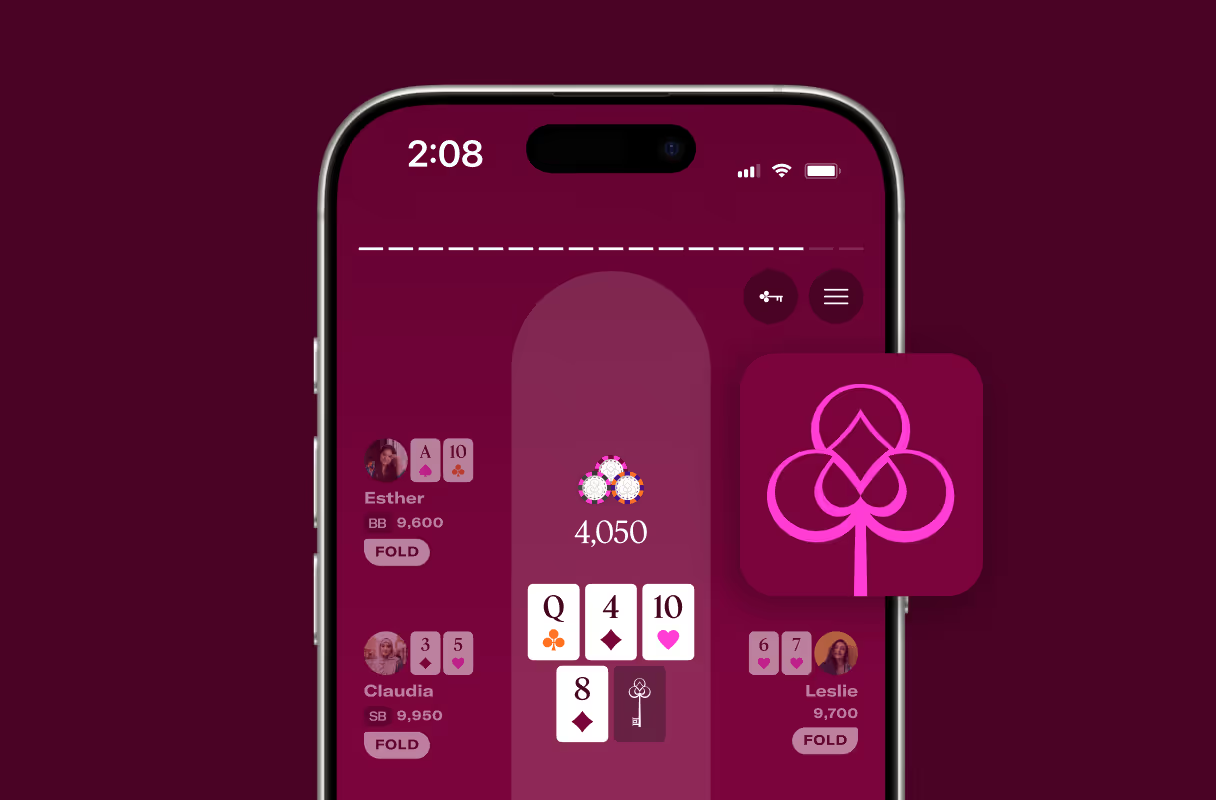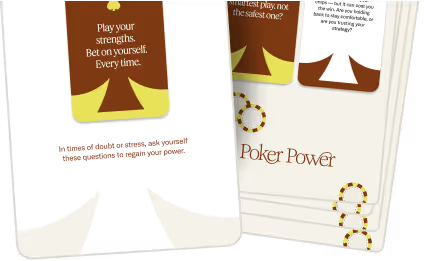Originally posted on www.jwcmedia.com
When Jenny Just, co-founder of PEAK6 Investments, a multi-billion- dollar options trading and technology firm, first heard her business partner and husband, Matt Hulsizer, mention the game of poker, it had nothing to do with their professional endeavors. He wanted their teenage daughter, Juliette Hulsizer, to learn how to play as a way to improve her tennis game, thinking it could help provide an edge in reading an opponent’s strategies. While neither Just nor her spouse were poker players, the suggestion soon turned into another personal and profitable joint family venture. In 2020, Just and Juliette founded Poker Power, a brand that now spans 40 countries worldwide. And, last fall, the mother and daughter duo took the stage at TEDxChicago to present How The Power of Poker is Changing the Game for Women, as they continue on a mission to reach and teach 1 million women.

Poker Power’s 20 instructors, a full-time staff, and a tech team have worked tenaciously to introduce the game to more than 32,000 women and girls from more than 200 organizations. In Chicago alone, Poker Power has partnered with notable names such as Morningstar, Sidley Austin, Northwestern Kellogg School of Management, and 1871. A proudly gender-neutral app is already in its next phase of development. “I want us to be the Peloton of poker,” explains Just, “steps, calories, minutes, we want to design a tool that will measure the journey for our players as if it were their exercise: how many hands, how many folds, and so forth in assessing strategies.” There is discussion around launching clubs for potential players to create or join, with ages ranging from high school on up, welcoming mothers and daughters, fathers and daughters, and any other assortment of interested individuals.
Just admits that part of the intrigue of Poker Power was curiosity about whether it would have been quite as big a deal for her sons. “I think it bothered me a bit that poker was just sort of a given for men to pick up and join, but traditionally not as common for women to engage.” Just says it’s easier for adult women to see poker translating to life skills, but young girls haven’t yet had the same experiences to make this recognition. “In poker, you are playing your hand but really you’re playing the table, and that breath of looking at the bigger picture, navigating risk, understanding networking, negotiating, and the rewards of patience, that’s where we can build comfort in seats of power elsewhere.”

It began by Just basically running an experiment in her Winnetka neighborhood. “I asked a few friends to join as a way to further entice Juliette. Ten girls and 10 moms for four hourly sessions, and between lessons one and four it was like the skies opened.” Just shares that initially everyone was relaxed rather than competitive, willing to share chips, and looking at each other’s cards, but by the last lesson the attitude had shifted. “You could sense it in the air—they were all sitting up straight, focused, and the confidence at the table, what I now call the ‘money table,’ had clearly and completely changed.” Learning alongside her daughter, Just realized the thought process was exactly what she was doing all day in the office. Simultaneous with the COVID-19 pandemic and the popular expansion of Zoom, their homegrown ladies’ poker group extended to online classes and then to collegial clusters at PEAK6. “When other finance industry executives began calling to inquire about how they could get in on this to benefit and boost female camaraderie within their own companies, it was obvious an entrepreneurial entity with a major cultural contribution had presented itself to us,” Just notes.

This was not the first time connections between sports and finance forged a path for Just. “I was a tomboy growing up, and loved following college basketball.” Raised in a suburb near Milwaukee, Wisconsin, her father was a surgeon, and her mother, now an artist, was a schoolteacher. Her four brothers provided an early training ground for navigating primarily male-dominated work scenarios. Just describes her mom as a role model and credits her for Just’s decision to go away for college. “She pushed me to spread my wings, and going out of state, I think, was an opportunity she didn’t have herself and wanted for me.”
At the University of Michigan, Just initially applied her aptitude for math by pursuing architecture. “My grandfather had recommended that as a potential field to fit nicely with my skill in numbers. I took one physics class and knew it wasn’t for me!” She was accepted into the business school and explains her postgraduate arrival on the options trading floor as more about landing in the right place than the right job position. “Chicago was the big city and the place I wanted to be,” says Just, “I would have done advertising, banking, you name it.”
Her commitment to the Midwest has never swayed. Just started her career at O’Connor & Associates, where she met her husband. Back then, they were two coworkers who both wanted to remain local when the company was making a move to the East Coast. Together, they collaborated on an idea pitch of continuing a branch in Chicago. Turned down, they responded by deciding to go out and do it on their own anyway. In 1997, PEAK6 was established.

Over the last 25 years, Just has stayed out of the spotlight by choice. “It was never a ‘maybe’ when the press would inquire before, it was a firm ‘no.’ But two things changed recently, I realized that people need to be proud of where they work, particularly with the internal PEAK6 structure changing with the possibility of Apex Fintech Solutions going public and my name getting out there. And, while I always knew we had a good story overall, I didn’t want to be talking about us without something tangible to offer.”
Poker Power provided the product she was seeking to join her voice. It doesn’t hurt either that Forbes and TIME magazine both recently featured Just in their publications. The fact that Poker Power is something she gets to do with Juliette makes it extra special. “She not only improved her tennis but went on to join lacrosse and became a varsity captain,” remarks Just, “that’s where we really saw her apply the concept of ‘what am I doing’ turn into ‘what is the team doing.’” As for herself, Just offers this advice in paying it forward to the next generation: “It’s really not about the hand you’re dealt,” she says, “it’s about how you play it.”





